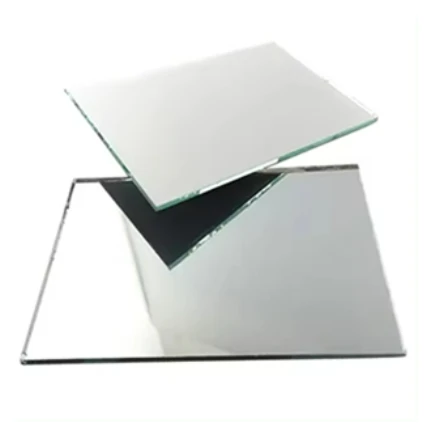Dec . 04, 2024 09:34 Back to list
types of glass panels
Types of Glass Panels Choosing the Right Option for Your Needs
Glass panels have become integral to modern architecture and design, offering both aesthetic appeal and functional benefits. From residential buildings to commercial spaces, glass panels are used in a wide variety of applications. Understanding the different types of glass panels available can help you make informed decisions in construction, renovation, or interior design projects. This article will explore the various types of glass panels and their unique properties.
1. Float Glass
Float glass, also known as sheet glass, is the most basic type of glass panel used in construction. It is manufactured by floating molten glass on top of molten tin, allowing it to form a flat surface. Float glass is clear and has a uniform thickness, making it suitable for windows, mirrors, and display cases. However, it provides little insulation and can break easily, so it is less durable than other options.
2. Laminated Glass
Laminated glass consists of two or more sheets of glass that are bonded together with a layer of vinyl or resin in between. This type of glass is highly durable and offers enhanced safety, as it holds together even when shattered. Laminated glass is often used in skylights, facades, and soundproofing applications. Its ability to block harmful UV rays also makes it a popular choice for vehicles and buildings.
3. Tempered Glass
Tempered glass is made by heating float glass to high temperatures and then rapidly cooling it. This process increases its strength, making it more resistant to impact and thermal stress than regular glass. Because of its durability, tempered glass is commonly used in shower doors, glass doors, and glass railings. Additionally, when broken, tempered glass shatters into small, blunt pieces, reducing the risk of injury.
4
. Insulated GlassInsulated glass, often referred to as double or triple glazing, consists of two or more glass panes separated by a spacer and filled with argon or another insulating gas. This design significantly improves the energy efficiency of windows, reducing heat transfer and lowering heating and cooling costs. Insulated glass is commonly used in residential and commercial buildings to enhance comfort and reduce energy expenses.
types of glass panels

5. Low-E Glass
Low-emissivity (Low-E) glass has a special coating that reflects heat and UV rays while allowing natural light to pass through. This glass type is designed to improve energy efficiency by minimizing heat loss in winter and blocking excessive heat in summer. Low-E glass is often used in energy-efficient windows and is a great option for environmentally conscious construction projects.
6. Mirrored Glass
Mirrored glass has a reflective coating applied to one side, creating a mirror effect. It is commonly used in retail displays, decorative applications, and architectural designs for both aesthetics and privacy. Mirrored glass can enhance the perception of space in smaller areas and is often used in commercial buildings to achieve a sleek, modern look.
7. Frosted Glass
Frosted glass is created by sandblasting, acid etching, or applying a film to standard glass, resulting in a translucent appearance that diffuses light. This type of glass provides privacy while still allowing natural light to enter a space. It is often used in bathroom windows, office partitions, and interior doors, offering an elegant solution to privacy concerns.
8. Patterned Glass
Patterned glass features decorative designs or textures that provide privacy while allowing light to pass through. It comes in various patterns and can be used in windows, doors, and shower enclosures. This type of glass adds a unique aesthetic touch to any space while maintaining functionality.
Conclusion
Choosing the right type of glass panel for your project depends on various factors, including safety, energy efficiency, aesthetics, and purpose. Float glass, laminated glass, tempered glass, insulated glass, Low-E glass, mirrored glass, frosted glass, and patterned glass each offer distinct advantages. By understanding the properties and applications of these different types of glass panels, you can make informed decisions that enhance your space and meet your specific needs. Whether you are designing a home, office, or commercial space, selecting the appropriate glass panel can significantly impact both functionality and style.
-
Safety and Style with Premium Laminated Glass Solutions
NewsJun.24,2025
-
Reinvents Security with Premium Wired Glass
NewsJun.24,2025
-
Premium Float Glass Line for Modern Architecture
NewsJun.24,2025
-
Low Emissivity Glass for Energy-Efficient Architecture
NewsJun.24,2025
-
High-Performance Insulated Glass Solutions for Modern Architecture
NewsJun.24,2025
-
Elevates Interior Style with Premium Silver Mirror
NewsJun.24,2025
Related PRODUCTS














